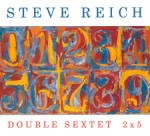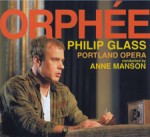Column Name
Title
Steve Reich: Double Sextet, 2x5. Eighth Blackbird, Bang on a Can. (Nonesuch 524853-2)
Body
When the virtuoso sextet Eighth Blackbird commissioned renowned composer and Juilliard alum Steve Reich (’61, composition), neither probably had a clue that the result, Double Sextet (2007), would win the 2009 Pulitzer Prize. Now the piece has been recorded by the ensemble (whose name, incidentally, comes from a line in the Wallace Stevens poem “Thirteen Ways of Looking at a Blackbird”), performing with a recording of itself to create the illusion of a dozen players. (Actual human beings may be deployed if the performers prefer.) In three sections—“Fast,” “Slow,” and “Fast”—the piece plunges immediately into a throbbing ostinato for piano and vibraphone, and as the remaining musicians join in, the score bristles and throbs with rhythmic syncopation. The middle section slows to a meditative crawl, before the third section begins in a bright tempo, returning to the first movement’s infectious pace. In the final pages, the sextet ascends to higher registers before a joyous, sudden exit.
For 2x5, Reich, who will turn 75 next October, commandeered the Bang on a Can All-Stars, which premiered the work at the 2009 Manchester Festival. Like the Double Sextet, 2x5 contains an intricate rhythmic core and uses a “fast-slow-fast” structure, and it is designed to be performed by either 10 players, or five musicians with recorded tracks of themselves, as is done here. The rhythms are punched out by piano and electric bass, interweaving with a trio of two electric guitars and drums in contrapuntal merriment. The two works were recorded separately: WFMT Studio in Chicago was the site for the Double Sextet (engineered by Bill Maylone), and John Kilgore Sound in New York for 2x5 (John Kilgore, engineer). Each emphasizes Reich’s energy and clarity.
Listeners wanting to hear some of Reich’s music live can do so on December 9 at Alice Tully Hall, where Juilliard’s Axiom ensemble will give an all-Reich concert that includes his Triple Quartet (1999) and Music for 18 Musicians (1974-76).
Philip Glass: Orphée. Portland Opera, Anne Manson, conductor. (Orange Mountain Music 0068)
In 1993 Juilliard alum Philip Glass (Diploma ’60, M.S. ’62, composition) transformed Jean Cocteau’s 1950 film Orphée into a chamber opera, premiered by American Repertory Theater, and now the work has been given a handsome performance and recording by Anne Manson and the Portland Opera. Glass has preserved many of Cocteau’s surreal touches, including the ominous motorcyclists who run down the poet Cégeste, mysterious radio messages that resemble the crackling broadcasts delivered to the French Resistance during the Nazi occupation, and the mirror to the underworld that provides Orphée and chauffeur Heurtebise with the means to reclaim Eurydice.
Glass’s score echoes Cocteau’s delicacy and masterful ability to conjure up startling, dreamlike imagery, finding inspiration in a classic myth. But some of the composer’s most engaging moments are small, such as in Act II, Scene 5, when Heurtebise, Orphée, and Eurydice return to Orphée’s room: Glass concocts a bubbling interlude of brass and strings with wood block accents—barely two minutes long—and moments later, in Scene 7, adds what sounds like a Morse code motif as part of the orchestral texture.
Conductor Anne Manson and the Portland Opera Orchestra give a polished, luminous reading of Glass’s arpeggiated phrases, and the talented cast of 13 is headed by Georgia Jarman as Eurydice, Lisa Saffer as La Princesse, Ryan MacPherson as Heurtebise, and Philip Cutlip in the title role. Production photographs included in the CD show the cast in modern dress, singing in a sleekly designed space of subdued beige, tan and earth tones—urbane yet a little disconcerting. Imagine Stephen Sondheim’s Company, but directed by David Lynch.
The project was recorded live by Billy Oskay (of Big Red Studio), who has captured Glass’s gorgeous mix of dread and hope—including the motorcycle engines, enigmatic radio transmissions, and occasional audience reactions to all of the above—with uncanny verisimilitude.
Glass on a smaller scale can be heard live at Juilliard in December when the School’s first-year dancers premiere a work by choreographer Matthew Neenan at New Dances: Edition 2010. Neenan set his piece, The Second Ratio, to Glass’s String Quartet No. 4 (the first and second movements ) and String Quartet No. 3 (fifth movement). It will be performed live by the Cilantro Quartet, featuring Juilliard musicians Charles Yang and Stephanie Yu, violins; Royce Zah, viola; and Justina Sullivan, cello.






